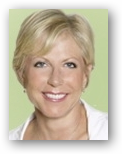This is a good article discussing how social networks are used by physicians, Twitter, Facebook, etc. Like everything else on the internet good common sense and imagination is important. There are several absolute “no-no”s” due to privacy and I think everyone is pretty much aware of what you can and can’t do, if you read the internet enough you’ll certainly find out about those who blew it, or those that were accused of blowing  it.
it.
I wondered myself about how important using Twitter was in the OR, but this situation with giving family and friends a progress report was not bad, again just be careful on what you say, or set up a private twitter account for occasion so everything is not blasted all over the web. I would say too this would be a few updates and not a long blow by blow descriptions of the entire process.
Dr. Erika Schwartz, who I interviewed earlier this year makes a good point about not answering a patient’s question on Facebook, I agree 100% there as now we are looking a privacy issues. This needs to be done through a secured “doctor-patient” SSL connection to ensure privacy. She loves social networks too and uses them, and again it’s common sense here on what to and what not to discuss.
Another doctor couldn’t find what he needed to work on his iPhone with the heavy volume of patients he sees and went out and created his one program. It is not what you would call a social network, but the iPhone application gives him the ability to have his notes with him and the ability to store and share at other places, all with an SSL connection.
Back on the topic here though, I don’t really see a need for a full time Twitterer in the OR at this point (grin), but as shown above there are times when it could serve a purpose. BD
In the waiting room, the patient's family members circled a Blackberry. About every 15 minutes, Dr. Carlos Wolf of Miami Plastic Surgery gave them a few keystrokes of information about how the patient was doing.
``M is asleep,'' one of Wolf's nurses typed at 9:13 a.m. on June 3. ``We will start surgery soon.''
Less than an hour later, the nose job was complete.
``Beautiful,'' the nurse typed. ``She's going to love it.''
``If it doesn't serve the patient, using it is unacceptable,'' says Dr. Erika Schwartz, an internist and medical director of the South Florida-based health insurance agency Cinergy Health. ``Sometimes, we all get carried away with the novelty of something. ''When a patient sent her a medical question using Facebook, Schwartz says, she made a point not to answer it there.
Doctors embrace social networking - Business - MiamiHerald.com




Insuring privacy on Twitter is effectively impossible and most health lawyers I've consulted on the matter suggest written consent in the chart before PHI is disclosed. And I might add that this is cool when everything goes as planned. But describing complications as they evolve may be unfair and excruciating for a waiting family.
ReplyDeleteI've written a bit about this recently on my blog, 33 Charts
It is important to consider that all of these new technologies are really just different communication tools. The key is understanding how the technology works in comparison to well understood forms of communication and then maintaining the appropriate level of discretion in doctor/patient/family interactions. You wouldn't yell out patient status to the whole ER waiting room and you wouldn't answer personal health inquiries in a newspaper column. Just take the time to understand the implications of the technology.
ReplyDelete